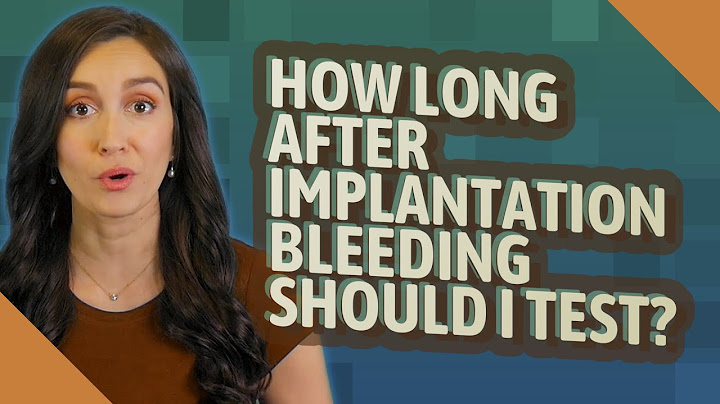FAQ155 Show
Published: February 2018 Last reviewed: July 2022 Copyright 2022 by the American College of Obstetricians and Gynecologists. All rights reserved. Read copyright and permissions information. This information is designed as an educational aid for the public. It offers current information and opinions related to women's health. It is not intended as a statement of the standard of care. It does not explain all of the proper treatments or methods of care. It is not a substitute for the advice of a physician. Read ACOG’s complete disclaimer. Call us right away if you:
What is methotrexate?It is a medicine that can be used to treat an ectopic pregnancy. It stops cells from dividing by interfering with the folic acid in your body. It is given by injection. You often only need 1 dose. Sometimes you will need a second dose. You will need to have blood tests to check the level of pregnancy hormone (hCG). You will get your blood drawn 3 separate times the first week. Based on these results we will let you know if you need a second dose. Then you will need your blood drawn once a week until your hCG test is negative. What are the benefits?There is a high chance of success. This means you will not need surgery. Your doctor will talk with you about your success rates. About 9 out of 10 people’s tubes stay open after treatment. How often will I need follow up?
Very important instructions for you to follow:Do not:
Do:Make sure to use condoms or other contraception until you have 1 normal period after your hCG is negative. What happens after I get methotrexate?
What are the side effects?Common side effects are:
Rare side effects are:
Unfortunately, the foetus (the developing embryo) cannot be saved in an ectopic pregnancy. Treatment is usually needed to remove the pregnancy before it grows too large. The main treatment options are:
These options each have advantages and disadvantages that your doctor will discuss with you. They'll recommend what they think is the most suitable option for you, depending on factors such as your symptoms, the size of the foetus, and the level of pregnancy hormone (human chorionic gonadotropin, or hCG) in your blood. Expectant managementIf you have no symptoms or mild symptoms and the pregnancy is very small or can't be found, you may only need to be closely monitored, as there's a good chance the pregnancy will dissolve by itself. This is known as expectant management. The following is likely to happen:
The main advantage of monitoring is that you won't experience any side effects of treatment. A disadvantage is that there's still a small risk of 1 of your fallopian tube splitting open (rupturing) and you may eventually need treatment. MedicineIf an ectopic pregnancy is diagnosed early but active monitoring isn't suitable, treatment with a medicine called methotrexate may be recommended. This works by stopping the pregnancy from growing. It's given as a single injection into your buttocks. You won't need to stay in hospital after treatment, but regular blood tests will be carried out to check if the treatment is working. A second dose is sometimes needed and surgery may be necessary if it doesn't work. You need to use reliable contraception for at least 3 months after treatment. This is because methotrexate can be harmful for a baby if you become pregnant during this time. It's also important to avoid alcohol until you're told it's safe, as drinking soon after receiving a dose of methotrexate can damage your liver. Other side effects of methotrexate include:
There's also a chance of your fallopian tube rupturing after treatment. You'll be told what to look out for and what to do if you think this has happened. SurgeryIn most cases, keyhole surgery (laparoscopy) will be carried out to remove the pregnancy before it becomes too large. During a laparoscopy:
Removing the affected fallopian tube is the most effective treatment and isn't thought to reduce your chances of becoming pregnant again. Your doctor will discuss this with you beforehand, and you'll be asked whether you consent to having the tube removed. Most women can leave hospital a few days after surgery, although it can take 4 to 6 weeks to fully recover. If your fallopian tube has already ruptured, you'll need emergency surgery. The surgeon will make a larger incision in your tummy (laparotomy) to stop the bleeding and repair your fallopian tube, if that's possible. After either type of surgery, a treatment called anti-D rhesus prophylaxis will be given if your blood type is RhD negative (see blood groups for more information). This involves an injection of a medicine that helps to prevent rhesus disease in future pregnancies. Page last reviewed: 23 August 2022 How long does it take to pass an ectopic pregnancy after methotrexate?The average time of resolution for ectopic pregnancy was 32 days for single dose of methotrexate and 58 days for those receiving two doses or more.
How long does it take for an ectopic pregnancy to resolve?In most cases, it can take up to six weeks to heal internally from ectopic surgery. This will depend on the surgical treatment undertaken and your own body. You may still feel pregnant until your hCG (pregnancy hormone) returns to non-pregnant level. This can take a few weeks, even after surgical treatment.
What happens after methotrexate for ectopic pregnancy?A few days after the injection, it is usual to begin to bleed and this bleeding can last between a few days and up to 6 weeks. It is usual to have some discomfort and pain initially but as long as this is not severe. If your pain is severe, please come into hospital immediately.
How successful is methotrexate for ectopic?The overall success rate of MTX therapy for ectopic pregnancy was 69.75%. The mean initial beta-human chorionic gonadotropin (β-hCG) level was significantly lower in the successful treatment group than in the failed treatment group (2538.08 IU/L versus 3533.17 IU/L, P = 0.000).
|

Related Posts
Advertising
LATEST NEWS
Advertising
Populer
Advertising
About

Copyright © 2024 nguoilontuoi Inc.


















